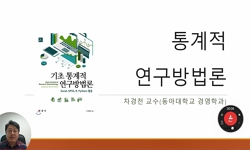This article suggests a new research methodology for Korean Neo-Confucianism. In order to do this, we need first to be clear about the nature of Korean Neo- Confucianism in relation to the question of whether it can be legitimately called philosophy i...
http://chineseinput.net/에서 pinyin(병음)방식으로 중국어를 변환할 수 있습니다.
변환된 중국어를 복사하여 사용하시면 됩니다.
- 中文 을 입력하시려면 zhongwen을 입력하시고 space를누르시면됩니다.
- 北京 을 입력하시려면 beijing을 입력하시고 space를 누르시면 됩니다.
https://www.riss.kr/link?id=A106466343
- 저자
- 발행기관
- 학술지명
- 권호사항
-
발행연도
2013
-
작성언어
English
- 주제어
-
등재정보
AHCI,SCOPUS,KCI등재
-
자료형태
학술저널
-
수록면
177-197(21쪽)
- 제공처
-
0
상세조회 -
0
다운로드
부가정보
다국어 초록 (Multilingual Abstract)
This article suggests a new research methodology for Korean Neo-Confucianism. In order to do this, we need first to be clear about the nature of Korean Neo- Confucianism in relation to the question of whether it can be legitimately called philosophy in the Western sense of the term. In this article, I shall focus on the following questions: (1) Is there such a thing as world or universal philosophy? (2) Can Korean Neo-Confucianism be considered to be world philosophy? (3) What is the reason for the Western rejection of non-Western thought as philosophy? And (4) what conditions are required for Korean Neo-Confucianism to remain as a science which is understandable to the ordinary man of reason? I offer a negative answer to (1) for the reason that there is no consensus on the definition of philosophy itself. And if there is no such philosophy, we do not have to be concerned with (2). In relation to (3), I examine Defoort who blames the rejection of the existence or legitimacy of Chinese philosophy on Western chauvinism or ethnocentrism. Unlike Defoort, I consider that the rejection is rather due to Western indifference to, or ignorance of, East Asian traditions of thought. The main contention here is that, although there is no such thing as world philosophy, contemporary Korean Neo-Confucian scholars still need to satisfy a number of basic conditions to make Korean Neo-Confucianism a science worthy of discussion in the future. In answer to (4), I here suggest consistency, validity, and conceptual clarity as such conditions. They are in general called logical elements since they are most commonly found in Western books on logic, but they are in effect “commonsensical” in that they are basic elements required in everyday conversation. It is hoped that the conditions should not be taken as a repetition of a controversy over the definition of philosophy, but simply as a “commonsensical” suggestion to write various traditions of thought in a “commonsensical” way.
목차 (Table of Contents)
- Abstract
- I. INTRODUCTION
- II. A SIMPLIFIED REQUIREMENT OF PHILOSOPHY
- III. KOREAN NEO-CONFUCIANISM AS WORLD PHILOSOPHY?
- IV. NEITHER WESTERN CHAUVINISM NOR ETHNOCENTRISM
- Abstract
- I. INTRODUCTION
- II. A SIMPLIFIED REQUIREMENT OF PHILOSOPHY
- III. KOREAN NEO-CONFUCIANISM AS WORLD PHILOSOPHY?
- IV. NEITHER WESTERN CHAUVINISM NOR ETHNOCENTRISM
- V. LOGICAL OR COMMONSENSICAL?
- VI. CONCLUDING REMARKS
- REFERENCES
동일학술지(권/호) 다른 논문
-
EVIDENTIALITY, PAST, AND PERSON IN MONGOLIAN AND KOREAN
- 계명대학교 한국학연구원
- 송재목
- 2013
- AHCI,SCOPUS,KCI등재
-
- 계명대학교 한국학연구원
- 이정환
- 2013
- AHCI,SCOPUS,KCI등재
-
Pronunciation Typology of Consonant Sequences and Korean Language Education
- 계명대학교 한국학연구원
- 김선정
- 2013
- AHCI,SCOPUS,KCI등재
-
An Analysis and Interpretation of Korean Vowel Systems
- 계명대학교 한국학연구원
- 허용
- 2013
- AHCI,SCOPUS,KCI등재







 eArticle
eArticle






